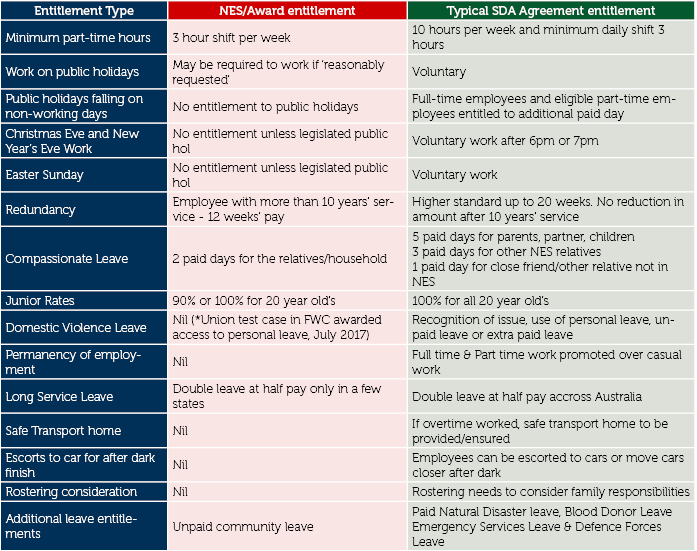Senate inquiry: Penalty Rates in the Retail, Hospitality & Fast Food sectors
September 21, 2017
News
By Justin Power
The Australian Senate has decided to have an inquiry into penalty rates in the retail, fast food and hospitality sectors.
The SDA made a formal submission to the Inquiry and Gerard Dwyer, SDA National Secretary, also made an appearance. The Inquiry was against a background of media misreporting over the last two years and Gerard welcomed the opportunity to ‘put the record straight’. Gerard spoke to the formal SDA submission, added comment and answered questions from the assembled Senators.
For members’ benefit, I have a provided a synopsis of the SDA submission:
- The SDA rejects claims that large employers have a competitive wage advantage over smaller businesses in the industries covered by the union.
- Wages are like any other cost to a business and must be measured over a trading cycle, financial quarter or season to be properly understood.
- Some business groups and others are disingenuous when they highlight rates on specific days but completely disregard the higher wage rates paid at other times across the roster cycle. As such, the Senate needs to be mindful of employees take-home pay, as opposed to single hourly rates of pay.
- SDA bargaining has delivered good industrial outcomes for retail and fast food workers.
- In companies where the SDA has a long history of bargaining, wage outcomes exceed both CPI and award increases.
- The SDA disagrees with the 2016 FWC Full Bench decision in Coles in that some of its remarks and calculations concerning rosters were not completely accurate for comparison purposes. Employee ‘U’ is the worst example cited in the Coles 2016 FWC decision. The decision lists Employee U as suffering an annual loss in earnings of $3506 when in actual fact employee ‘U’ would be at least $1600 better off.
- Loaded rates have been a part of the Australian industrial relations landscape for decades and the underlying reference has always been ‘take-home’ pay of employees.
- As well as increasing base rates of pay, the SDA has been highly successful in improving other important entitlements for employees. Below is a list of examples of entitlements that are typical in SDA Agreements:

